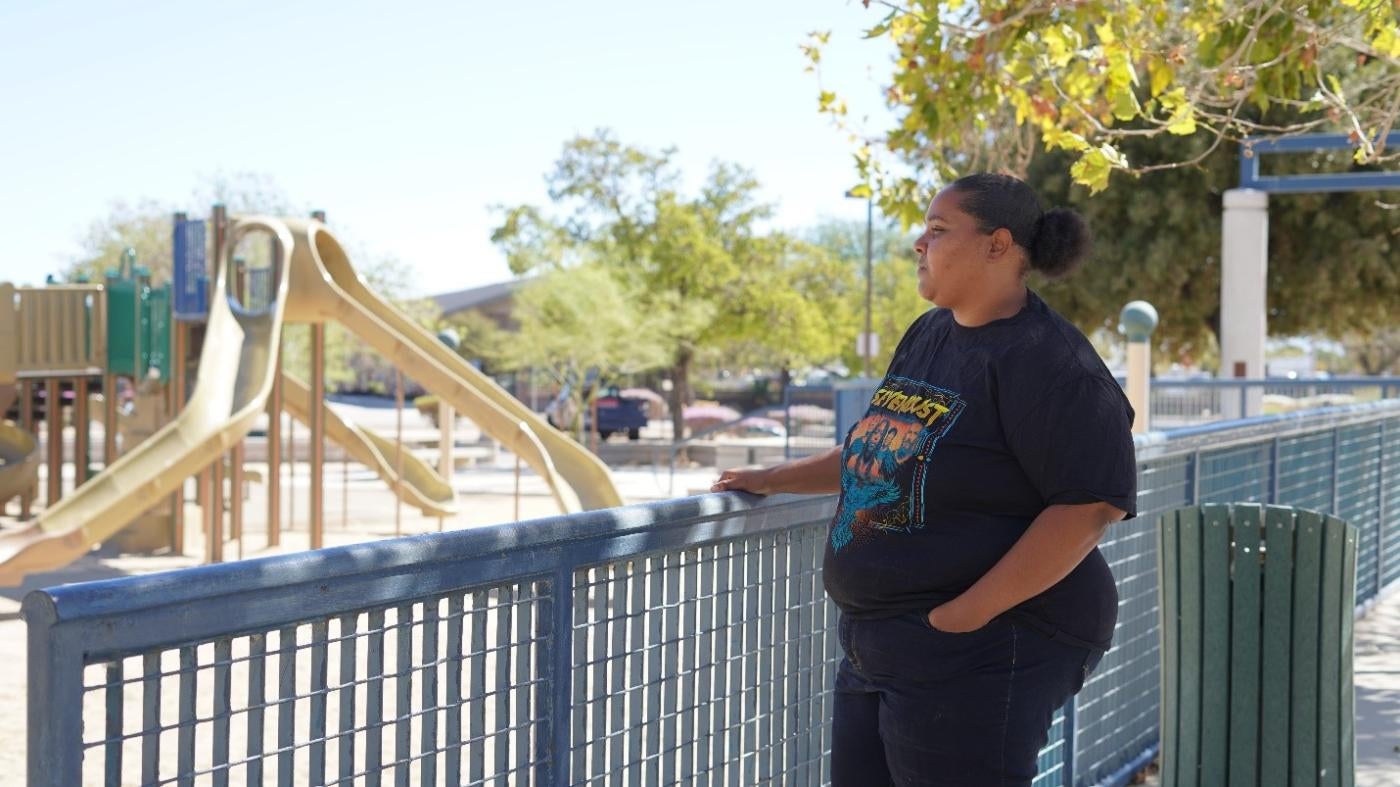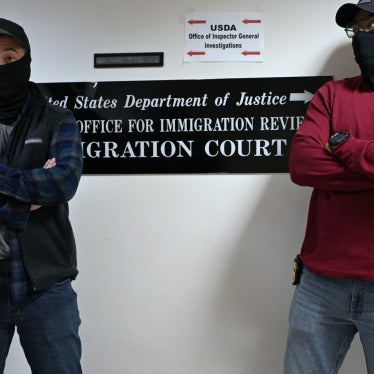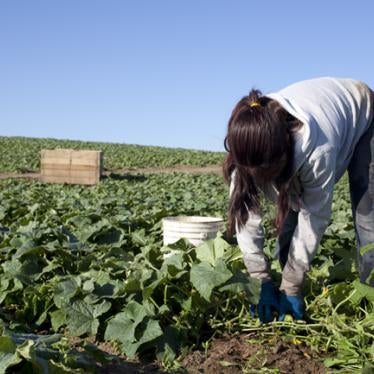The report describes the issues facing the child welfare system as a national problem. Can you give readers an idea of the scale of the challenges facing the system?
Every year, more than 3 million children experience a child welfare investigation and around 200,000 children enter the foster system. To put that in perspective, one in three children in the United States will be part of a child welfare investigation by age 18 and every three minutes a child is removed from their home and placed in the foster system, often to live with foster families.
Black families are disproportionately impacted. Black children are almost twice as likely to experience investigations and are more likely to be separated from their families than their white counterparts.
While these are shocking statistics, they fail to capture the sheer scale of the damage caused by investigations alone, and they also do not convey how families can be negatively impacted for years or even decades by child welfare interventions.
One example of long-term harm has to do with state child maltreatment registries which are used by employers for background checks across a broad range of fields related to childcare, health care, and education.
At the end of a child welfare investigation, if the caseworker or child welfare agency believes that the allegation of “neglect” or abuse is true, then parents are listed on the state’s registry. This often happens without any court involvement and without any attorney to represent the parents. In some states, parents are listed on the registry even when an allegation was not substantiated. The length of time parents and caregivers remain on registries varies from state to state, but it can be years or decades, during which time they cannot pass a background check and are excluded from many employment opportunities.
The report found that families living in poorer areas were more likely to be investigated by child services than families living in wealthier areas. How important a role is poverty playing?
The most common reason why child welfare agencies become involved in families is neglect. While definitions can vary from one state to the next, neglect is generally defined as a parent or caregiver failing to provide adequate food, clothing, hygiene, nutrition, shelter, medical care, or supervision in ways that threaten the well-being of the child. This definition is inextricably linked to poverty and gives caseworkers broad leeway and discretion to make subjective and even biased determinations.
Families that have few resources are likely to need more social services. Their children are more likely to go to public school. They are more likely to use public health care, and the community is more likely to come into contact with the police. This means that children are going to be exposed to more agencies and service providers that are mandated to refer anything that could fall under the broad umbrella term of neglect. Because mandatory reporting requirements impose harsh penalties for failing to report suspected maltreatment, providers fear losing their jobs or licenses or even facing criminal charges for failure to report. This fosters a culture of default reporting, “just in case,” and overwhelms the child welfare system.
The child welfare system effectively penalizes parents for experiencing poverty. So, a mother who can’t afford to buy her child a winter coat risks losing her child due to so-called neglect. But that same child’s foster family will receive hundreds of dollars every month to support the child. It makes no sense.
Instead of punishing families living in poverty, the government should be supporting them and investing in more community resources. Parents need financial support to escape poverty and meaningfully meet their families’ needs instead of surveillance, regulation, and punishment. Long-term change requires addressing the extreme economic hardship at the heart of many child welfare cases and the impact of systemic racism. Governments have an obligation to ensure that everyone enjoys their right to an adequate standard of living.
How are Black families impacted differently?
Here’s another way the US child welfare system disproportionately impacts Black families. We know the system hurts families living in poverty. Our research also found that while there is a direct correlation between poverty and the rate of maltreatment investigations launched, that correlation is weaker when it comes to Black families. This is what it looks like: We found that the more impoverished white families in a county are, the higher the investigation rates of white families there tend to be. But in many counties, investigation rates for Black families remain high even when Black poverty is low. This corroborates what many Black families have said for a long time – that they experience higher rates of surveillance and reporting.
Tell me about your experience in the child welfare system and why you became an advocate for change?
I’m a registered nurse, and one of my first jobs out of nursing school was working at a foster agency in New York. I spent three years with the agency, eventually rising to the rank of health services director.
The child welfare system’s role is widely perceived to be ensuring children are safe, and when mistakes are made the public is rightly outraged, like in the harrowing case of Gabriel Fernandez. Gabriel was a young child who died after months of abuse and torture, despite having been reported to California child welfare services numerous times. His story became the subject of a Netflix documentary. But cases like this can create the misconception that failures in the child welfare systems are primarily because authorities fail to intervene to protect children from harm, and this becomes the overwhelming narrative when discussing reforms.
Gabriel’s story is heartbreaking, but most referrals to the child welfare system do not involve abuse. For example, in 2019, US states reported that fewer than 18 percent of confirmed child maltreatment cases involved physical abuse. The overwhelming majority of cases, nearly 75 percent in 2019, include allegations of state-defined neglect. Put bluntly, this elastic term often boils down to punishing families for living in poverty. Circumstances related to poverty, like parents struggling to pay rent or secure stable housing, is interpreted as parental unfitness. For some parents, this lack of resources is used as evidence to remove their children; for others, it prevents them from reuniting with their children. Parents we interviewed said they couldn’t take off work to attend or even afford to pay for costs associated with the classes they were required to take to reunite with their children. As a result, conditions of poverty can prevent family reunification.
The report discusses how child welfare involvement often has profound consequences, including family separation, termination of parental rights, and in some cases criminal charges. Was there anything in your research that really surprised you?
One of the things I found most worrying when I worked in the child welfare system was how easily parents’ rights are disregarded under the premise of protecting children. In the criminal legal system, a police officer would need a warrant to search your property, must make you aware of your rights, and any evidence would have its credibility rigorously tested. The same high standards simply don’t exist in the child welfare system, and the consequences are severe. A referral to child services might see your house searched by caseworkers, your neighbors questioned, and your child strip-searched and traumatized – sometimes based on an anonymous or unfounded accusation. Beyond the trauma this invasion might cause, it can also see you stigmatized in your workplace or community and have serious implications for your future employment opportunities.
I think there are well-meaning people who believe that by reporting children, they are protecting them. As a young nurse working in the child welfare system, I shared the belief that the system was keeping children safe, helping parents, reunifying families, and making a difference. The longer I was exposed to the system, I realized the opposite is true, and now I feel compelled to shed light on its harms.
What changes would you like to see implemented to address these issues?
What I would like to see, and what our report urges, is for the US to stop policing and separating families experiencing poverty by charging parents with neglect and removing their children.
I would also like to see the US acknowledge and meaningfully redress the harms of the child welfare system. The US can begin by holding public hearings, including Congressional hearings, to hear from families impacted by the child welfare system.
Instead of spending billions on an inefficient and harmful child welfare system, the US should strengthen families, expanding social protections so that families don’t struggle with poverty to begin with, and reduce the system’s footprint.
*This interview has been edited and condensed.




